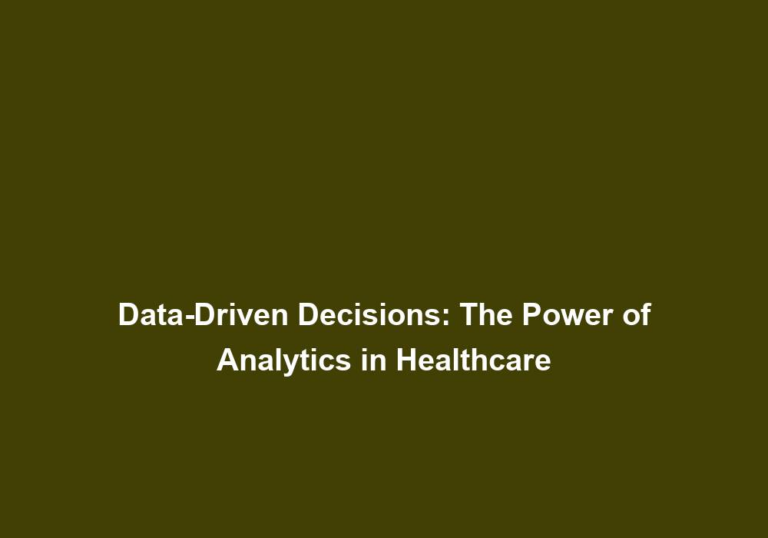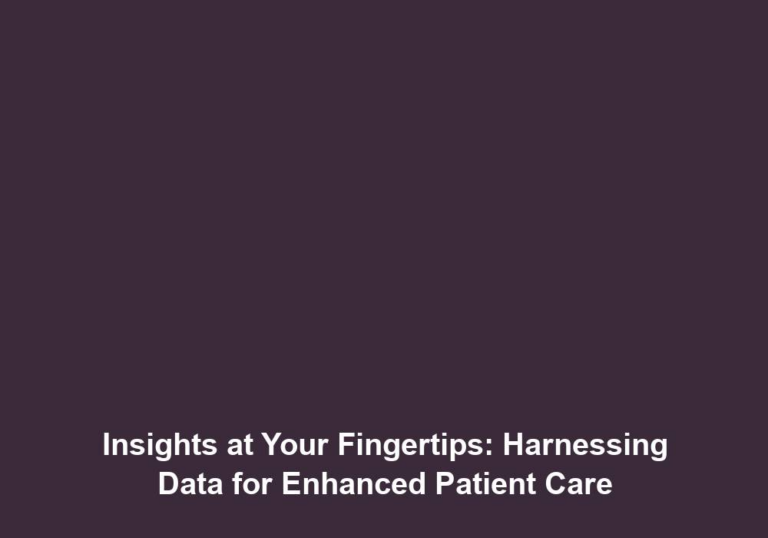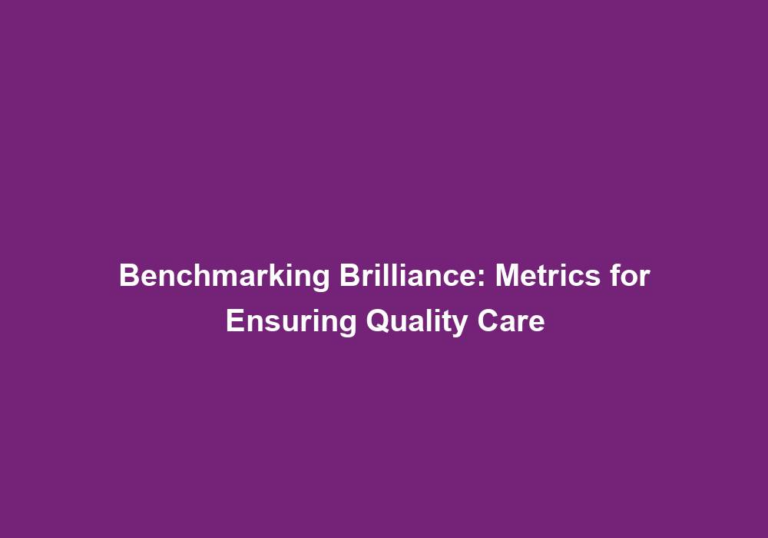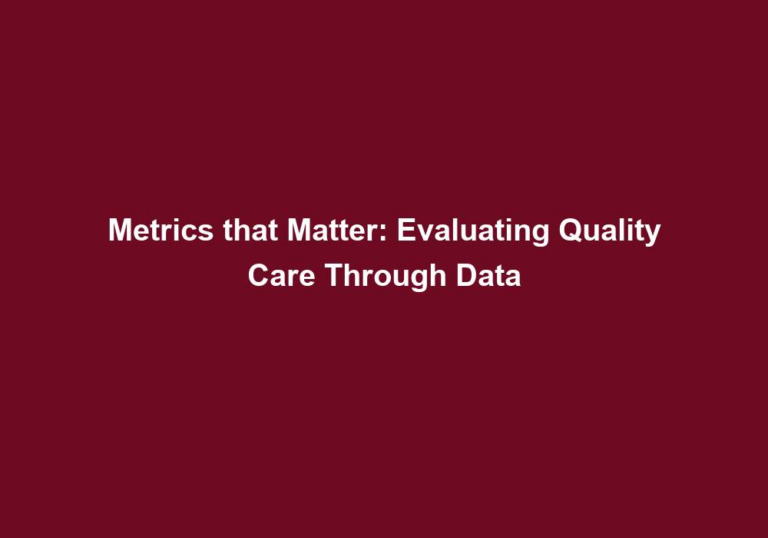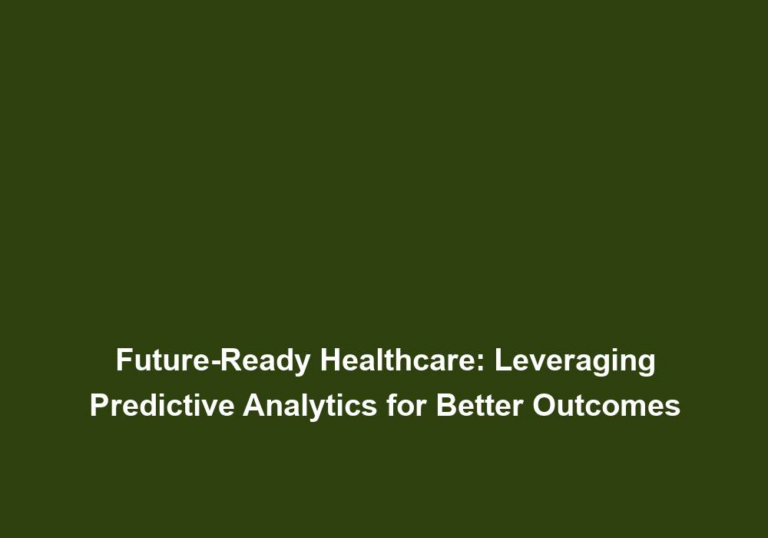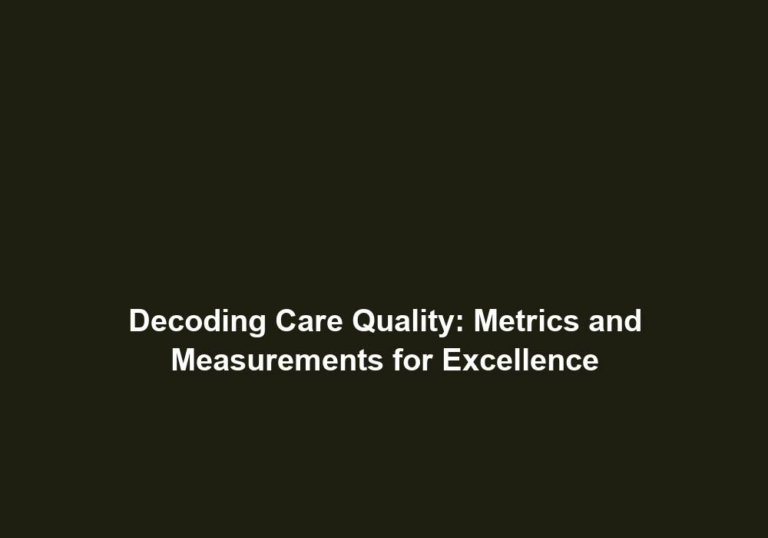Predict, Prevent, Perfect: The Power of Predictive Analytics in Health
In today’s rapidly evolving healthcare landscape, the use of predictive analytics has emerged as a powerful tool to revolutionize the way we approach healthcare. By harnessing the power of data and advanced algorithms, predictive analytics enables us to predict, prevent, and perfect healthcare outcomes like never before. In this article, we will explore the immense potential of predictive analytics in healthcare and its impact on improving patient care.
Understanding Predictive Analytics
Predictive analytics involves the use of statistical algorithms and machine learning techniques to analyze vast amounts of data and make predictions about future events or outcomes. In the context of healthcare, this means utilizing historical patient data, medical records, genomic information, and other relevant data sources to anticipate potential health issues, identify at-risk populations, and optimize treatment plans.
Predictive analytics enables healthcare providers to gain valuable insights by identifying patterns and trends within large datasets. By analyzing this information, healthcare professionals can make informed predictions about future health events, such as the likelihood of developing certain diseases or the probability of readmission, complications, or adverse events. This proactive approach allows for early intervention, preventive measures, and targeted interventions, leading to a significant reduction in the burden of disease.
Some of the key benefits of predictive analytics in healthcare include:
-
Early detection of diseases: By analyzing historical patient data, predictive analytics can identify individuals who are at a higher risk of developing certain diseases. This information allows healthcare providers to implement preventive measures and interventions to mitigate the risk.
-
Personalized screening programs: Predictive analytics can recommend personalized screening programs based on an individual’s genetic markers and other relevant factors. This tailored approach ensures that individuals receive the appropriate screenings at the right time, improving the chances of early detection and treatment.
-
Lifestyle modifications: With the help of predictive analytics, healthcare professionals can suggest lifestyle modifications to individuals at an increased risk of certain diseases. This may include dietary changes, exercise plans, or other preventive measures to improve overall well-being.
-
Treatment optimization: By analyzing individual patient data, predictive analytics can help healthcare providers optimize treatment plans. Factors such as genetic information, lifestyle factors, and medical history are taken into account to determine the most appropriate treatment options. This personalized approach improves patient outcomes and reduces unnecessary treatments and healthcare costs.
Predictive Analytics in Disease Detection and Prevention
One of the key applications of predictive analytics in healthcare is disease detection and prevention. By analyzing patterns and trends within large datasets, predictive analytics can help identify individuals who are at a higher risk of developing certain diseases. This information enables healthcare providers to intervene early, implement preventive measures, and initiate targeted interventions that can significantly reduce the burden of disease.
For example, imagine a scenario where a predictive analytics model detects a high correlation between certain genetic markers and the likelihood of developing cancer. Armed with this information, healthcare professionals can proactively recommend personalized screening programs, lifestyle modifications, or even offer genetic counseling to individuals who are at an increased risk. By identifying potential health risks before they manifest, predictive analytics plays a vital role in preventing diseases and promoting overall well-being.
In addition to early detection and prevention, predictive analytics can also assist in disease management. By analyzing patient data, healthcare providers can predict disease progression, identify potential complications or adverse events, and adjust treatment plans accordingly. This proactive approach ensures that patients receive timely and appropriate care, leading to improved outcomes and quality of life.
Personalized Medicine and Treatment Optimization
In addition to disease prevention, predictive analytics also holds great promise in the field of personalized medicine. By analyzing individual patient data, such as genetic information, lifestyle factors, and medical history, predictive analytics can help healthcare providers tailor treatment plans that are specifically optimized for each patient.
This approach takes into account various factors that influence treatment outcomes, such as drug efficacy, potential side effects, and individual patient characteristics. By leveraging predictive analytics, healthcare providers can make more informed decisions regarding the most appropriate treatment options for their patients. This not only improves overall patient outcomes but also helps minimize unnecessary treatments and reduce healthcare costs.
Predictive analytics can also assist in clinical trial design and drug discovery. By analyzing patient data and identifying patterns, researchers can uncover new insights into disease mechanisms and potential treatment targets. This knowledge can guide the development of more effective therapies and personalized treatment approaches.
Enhancing Clinical Decision-Making
Clinicians often face complex decision-making scenarios where multiple variables need to be considered. Predictive analytics can provide valuable insights and support physicians in making evidence-based decisions. By analyzing historical patient data and clinical outcomes, predictive models can assist healthcare providers in predicting the likelihood of certain outcomes, such as the probability of readmission, complications, or adverse events.
These predictive insights can aid in risk stratification, enabling clinicians to allocate resources efficiently and prioritize high-risk patients. Additionally, predictive analytics can support clinical decision support systems, guiding healthcare professionals in choosing the most appropriate diagnostic tests, treatment protocols, and interventions based on individual patient characteristics.
For example, predictive analytics can help clinicians identify patients who are at a higher risk of developing complications after surgery. Armed with this information, healthcare providers can take proactive measures to prevent these complications, such as adjusting medication dosages, monitoring vital signs more closely, or providing specialized post-operative care. By leveraging predictive analytics, clinicians can improve patient outcomes and reduce the likelihood of adverse events.
Improving Operational Efficiency
Predictive analytics is not limited to improving patient care alone; it can also optimize healthcare operations and resource utilization. By analyzing data on patient flow, staffing patterns, and resource allocation, healthcare administrators can forecast demand, optimize scheduling, and allocate resources effectively.
For instance, predictive analytics can help hospitals predict patient admission rates, enabling them to adequately staff each department and ensure optimal patient care. It can also aid in predicting patient discharge times, facilitating efficient bed management and reducing waiting times. By leveraging the power of predictive analytics, healthcare organizations can optimize their operations, streamline workflows, and ultimately enhance the overall patient experience.
Additionally, predictive analytics can assist in inventory management, ensuring that essential medical supplies and equipment are always available when needed. This reduces the risk of stockouts or overstocking, leading to cost savings and improved operational efficiency.
Overcoming Challenges and Ethical Considerations
While predictive analytics holds immense potential, it is not without its challenges and ethical considerations. Privacy and data security are critical concerns, as the use of sensitive patient data requires stringent safeguards to protect individual privacy rights. Healthcare organizations must ensure compliance with regulations such as the Health Insurance Portability and Accountability Act (HIPAA) to maintain patient confidentiality and security.
Furthermore, there is a need for transparency and explainability in predictive models. Healthcare providers and patients should be able to understand how predictions are made, the variables considered, and the limitations of the model. This fosters trust and allows for informed decision-making.
To address these challenges, healthcare organizations should prioritize robust data governance practices, including data anonymization, encryption, and access controls. They should also invest in technologies and tools that promote transparency and explainability, allowing stakeholders to understand and validate the predictions made by predictive analytics models.
Conclusion
The power of predictive analytics in healthcare is undeniable. By harnessing the immense potential of data, advanced algorithms, and cutting-edge technology, predictive analytics enables us to predict, prevent, and perfect healthcare outcomes. From disease detection and prevention to personalized medicine and treatment optimization, predictive analytics has the potential to transform the way we approach healthcare. However, it is crucial to address the ethical considerations and ensure privacy and transparency in the implementation of predictive analytics. As we continue to advance in the field of health analytics, the future holds great promise for improving patient care and revolutionizing the way we deliver healthcare services.


